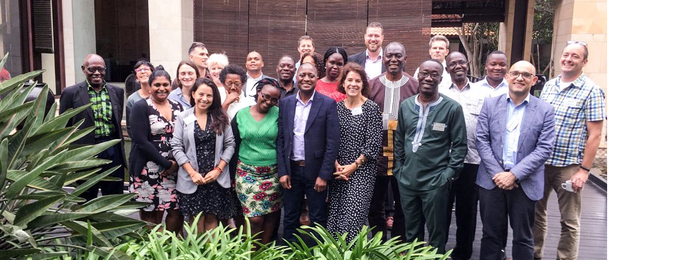
The meeting started with a day of communications training from Rosalind Goodrich, Head of research communications at the International Institute for Environment and Development (IIED). Rosalind led national teams through presentations and break-out group sessions on techniques for focusing on one’s audience in communications. Country teams agreed to implement their national communication strategies and to engage communications specialists going forward for national strategy development.
Participants discussed the draft Management Response to the Mid-Term Review. The dialogue led to the decisions to strengthen the membership of the Global Project Steering Committee, as well as to enhance the expertise of the International Technical Advisory and Upscaling Group (ITAUG). Participants recommended the ITAUG engage an international gender mainstreaming expert to develop a gender mainstreaming action plan, and to engage a new member with data visualisation skills.
Mike Gill (GEO BON and NatureServe) presented on upscaling opportunities for the Connect project, emphasising the importance of concentrating and streamline upscaling efforts. He recommended focusing on vertical upscaling work within the Connect countries to upscale the political economy analysis and BIPs in other sectors and government agencies. Data partners presented on the process of building biodiversity information products, lessons learned from their own experience building BIPs and how to grab innovations from others who have already successfully gone through the process of developing BIPs.
National teams gave an update on their progress collecting biodiversity data and selecting their biodiversity information products. They also shared the impacts they anticipate their biodiversity information products will have in their countries. In collaboration with the project’s data partners, the national teams integrated inputs from previous sessions at the AHM to develop their national plans. National planning discussions centred upon producing and sustaining the BIPs, including where the biodiversity data can be housed, the importance of data sharing agreements to govern the use and maintenance of the data, and how to convert the data into products that drive decision-making.